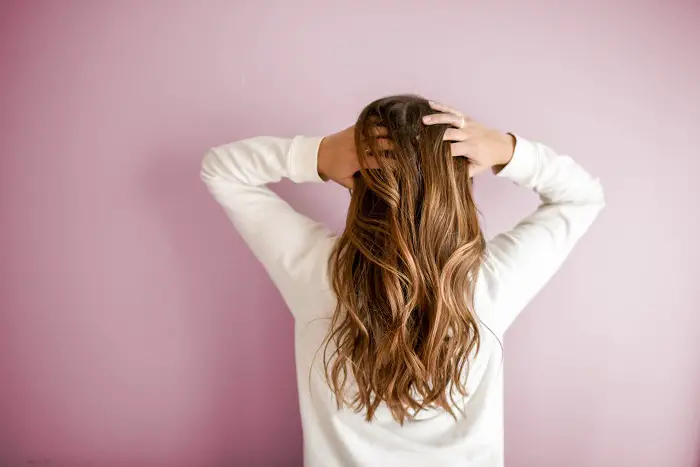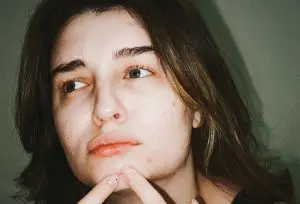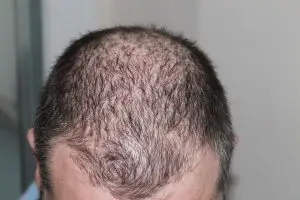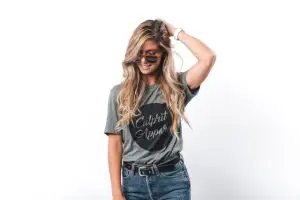Losing your hair is part of a natural process. However, when these start to fall more excessively, it may be indicative of a dysfunction in your body. But do not panic, there are solutions to counter this hair loss! Learn with this article what to do when you lose your hair at 21. First of all, we will see the various causes that result in hair falling out enormously. Subsequently we will see solutions and tips to fight against hair loss at 21.
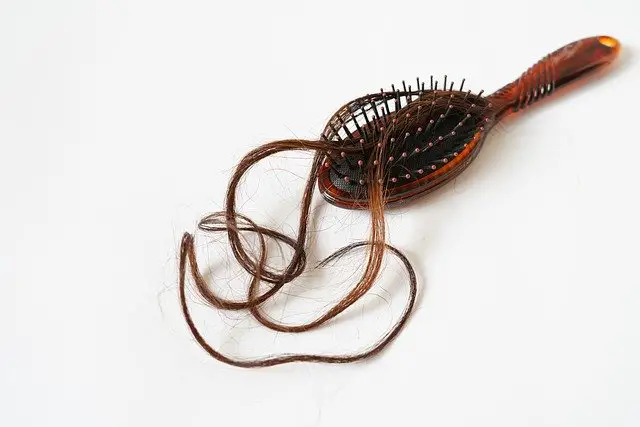
In this section:
Causes of hair loss at age 21
Hair loss is often very badly experienced. And especially when you are young. However, it is generally, and more specifically in women, a concern that has a cure. However, to do this you will need to understand the origin of your falling hair. In this first part, learn the different causes of your hair loss at age 21.
Why is your hair falling out?
Hair loss is a natural phenomenon. It is a process of renewing the hair fiber that will allow your hair to regenerate and stay healthy. To explain it to you otherwise, hair has a life cycle: hair dies and as a result falls out and new ones grow in their place to replace them on their hair follicles. This mechanism is not malfunctioning if you lose between 50 and 100 hairs per day. Sometimes this mechanism is accentuated. If you notice that you lose more than a hundred hairs per day and if this phase drags on; or if you notice a loss of volume and your hair is thinning, it will be necessary to seek and diagnose the cause of your dysfunction in order to find the right treatment.
There can be many causes of hair that falls out a lot. We suggest that you call your general practitioner for an in-depth analysis of your general state of health and identify any deficiencies; or a dermatologist for an external examination of the condition of your scalp. This way you will have a solution which is unique to you and a treatment adapted to your problem.
The different causes of hair loss at 21
There are various causes that can lead to excessive hair loss at age 21. First of all, try to define the factor that seems to you to be the source of your hair loss concern. In this way, it will allow you to find the solutions to solve this problem in an efficient and targeted manner.
1 - Heredity can cause hair to fall out at age 21
Androgenetic alopecia or baldness often occurs in humans and is linked to a hereditary factor. That is to say that in general, it is transmitted from generation to generation. If your male line has had baldness, you are more likely to contract it too. It also happens sometimes, but not more rarely, that it manifests itself in women.
2 - A hormonal change can cause excessive hair loss at age 21
This cause concerns more in girls, who undergo much larger hormonal changes. These different hormonal changes that can cause hair that falls out a lot are: the menstrual cycle, hormonal contraception, pregnancy, post-childbirth… Hormonal imbalance can also come from the thyroid. The latter maintains the proper functioning of the body, and it is therefore essential in the balance of the body and the maintenance of healthy hair.
3 -External attacks on your hair can lead to hair loss
Nowadays, many factors are aggressive for our hair and they lead to excessive hair loss. Recurring straightening, the use of harmful hair products, unsuitable shampoo, hair dryer, chlorine, Brazilian straightening, coloring or on the contrary discoloration can be all reasons which deteriorate the health of your hair and lead to loss of hair. your hair at 21.
4 - Hair loss at age 21 can result from nutritional deficiencies
Diet is a key factor in having healthy hair. If you are missing some basic nutrients, it will lead to malfunctions in the production of hair and therefore potentially hair loss in large numbers. Nutritional deficiencies that risk causing significant hair loss at age 21 are the deficiency of iron, vitamins and in particular those of group B, zinc, and / or copper. Weight loss diets or anemia that lasts over time are usually the cause in women.
5 - A poor lifestyle can lead to excessively falling hair
A stressful pace of life, life situations that lead to chronic stress, severe fatigue, unbalanced diet and smoking can all be factors that accentuate hair loss at age 21.
- Stress activates the oxidative process of cells and therefore can trigger hair loss.
- Our current food consumption is devoid of nutritional elements, minerals and vitamins essential for the body. In addition to leading to deficiencies, it contains too much salt, sugar and fat, which can cause pathologies and health problems which inevitably have repercussions on the hair.
- Smoking is well known to precipitate premature aging of the skin and hair. This is because the substances present in cigarettes affect the hair follicles and consequently tobacco causes hair to fall out faster than its ordinary cycle.
6- Abnormal hair loss at age 21 can be caused by emotional shock
In fact, in reaction to a traumatic psychological shock and following significant stress, the body's immune defense mechanism would react and change the normal functioning of certain cells. As a result, this would result in hair falling out too much at age 21.
7- Illness can cause excessive hair loss
La trichotillomania, syphilis, ovarian disease, and some cancers can cause significant hair loss at age 21. If your hair is falling out severely and in patches when running your hand through your hair, alopecia areata may be the source. However, do not fall into psychosis. These pathologies are extremely rare and are most often accompanied by other more alarming symptoms. If you have any doubts, do not hesitate to consult your doctor.
What to do to avoid having hair that falls out at 21?
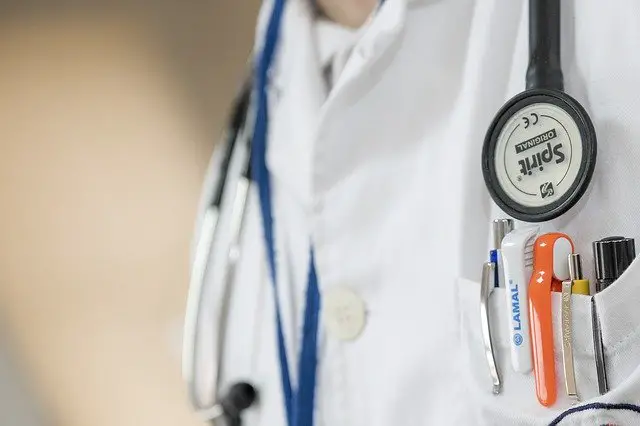
If you have already spotted where your hair loss concern is coming from, you can follow up now our recommendations, solutions and tips against hair loss at 21 being careful to ensure that they match your problem.
Diagnose by a health specialist
Dermatologist, general practitioner, and nutritionist are all professionals who can guide you to find out the cause of your hair falling out at age 21. We recommend that you make a diagnosis by one of these professionals to be sure that you choose the treatment that suits you.
Anti-hair loss treatments
Keep in mind that it is important that you get treatment that is right for your problem. Indeed, if your hair loss problem at 21 is dependent on an internal concern (for example: hormonal problem, diet, stress etc.) you will need to treat it with a treatment capable of resolving this internal imbalance. Reciprocally if your hair loss is related to an external concern. For example, an anti-hair loss shampoo will not solve your hormonal imbalance concern.
1 - Anti-hair loss products to fight against hair that falls out at 21 years old
These treatments are used to treat your hair loss if you have an external imbalance (accumulation of sebum, unhealthy or sensitive scalp, etc.). These products treat seasonal and short-term hair loss.
- Shampoos to prevent hair loss at age 21. There are many anti-hair loss shampoos on the market. We suggest you alternate between using these shampoos and using a mild shampoo that is not harsh on your scalp and roots. In the event that in addition to your hair falling out you also tend to have quick oily hair and dry lengths and ends, conventional liquid shampoos are surely not for you. We advise you to switch to natural shampoo, which do not contain sulphates, silicones and quats and which are therefore not aggressive for your hair.
- Local products to fight hair that falls out at age 21. Generally presented in the form of a lotion, they will allow, thanks to many active ingredients (vitamins, minerals, aminexil, etc.) to stimulate the hair bulb. So they strengthen your hair and your roots. You can get it in pharmacies. Do not hesitate to ask the pharmacist for advice, who can help you choose the right product.
2 - Food supplements prevent hair loss at age 21
Food supplements are used to treat internal problems in case of dietary deficiencies. They must be taken at least 3 months. Depending on your needs and your deficiencies, food supplements can be:
- Special "anti-hair loss" hair food supplements. They are made up of all the nutrients and minerals that hair uses to strengthen and maintain good health.
- Vitamins A and B.
- Zinc or copper.
- Iron. It should be noted that excessive hair loss is often linked to anemia (iron deficiency). If this is your case, opt for dietary supplements rich in iron. Spirulina or brewer's yeast are also highly recommended in cases of anemia.
3 - Natural solutions to prevent hair loss
- Herbal medicine to prevent excessive hair loss. Mother Nature has given us everything we need to be healthy. Because of this, certain plants play an important role in treating hair loss at age 21. The latter have virtues which are also recognized in the world of medicine since they are regularly used in food supplements for hair. These different plants are: Quinine, Sylvester Pine, Liquorice, Rosemary or Nettle. You can buy it in pharmacies. Please note, they only apply for external use.
- Natural vegetable oils to restore vigor and strength to the hair. The most famous is castor oil. Indeed, this allows the hair to grow healthily and quickly. You can also apply Jojoba Rosemary Coconut, Avocado, and Nigella oils. Apply the one of your choice on your scalp and massage gently to stimulate the hair follicles.
- Essential oils to prevent hair loss. The most recommended are the essential oils of Bay Saint Thomas, Rosemary with cineole, Ginger, Cypress of Provence, Sylvester pine, Grapefruit, Ylang-Ylang. Be careful, however, they are not suitable for pregnant women and children under 12 years old. Also know, concerning its application: you just have to add 1 or 2 drops in your shampoo or your vegetable oil then massage your scalp with this mixture. Be careful never to exceed the recommended doses.
Prevention to prevent hair loss at 21
- Avoid foods that are too fatty, too sweet as well as fast food.
- Eat foods rich in trace elements, minerals, and vitamins, especially vitamins A and B. Iron, zinc and copper are similarly essential for maintaining healthy hair.
- Eat a balanced diet and try as much as possible to consume unprocessed or minimally processed foods, good quality vegetables and fruits, meat and fish.
- Avoid cigarettes which accelerate the aging of cells and clog the hair follicles.
- Avoid exposing your hair to excessive heat sources (straightening iron, hair dryer, sun).
- Avoid shampoos that are too harmful for your hair and try to space them out as much as possible (if possible no more than two applications per week).
- Drink at least 1.5L of water per day to hydrate your hair.
- Avoid repeating and aggressive coloring like ammonia-based. Choose natural colors if possible.
- Massage regularly to stimulate blood flow to the bulb.

